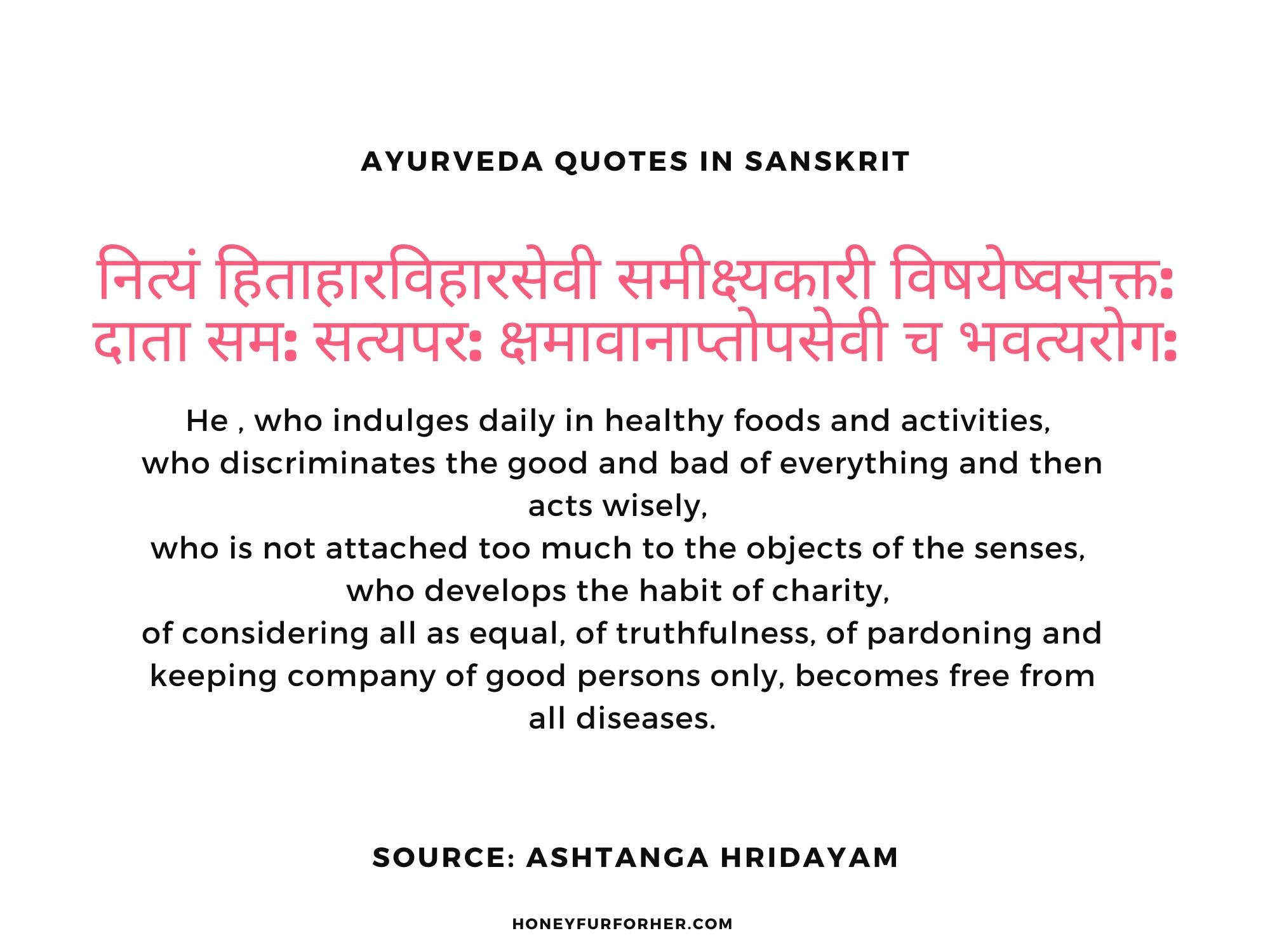
27 Ayurveda Quotes / Shlokas In Sanskrit With English Translations
17 Ayurveda Quotes "Because we cannot scrub our inner body we need to learn a few skills to help cleanse our tissues, organs, and mind. This is the art of Ayurveda." ― Sebastian Pole "When diet is wrong, medicine is of no use. When diet is correct, medicine is of no need." ―Ayurvedic proverb
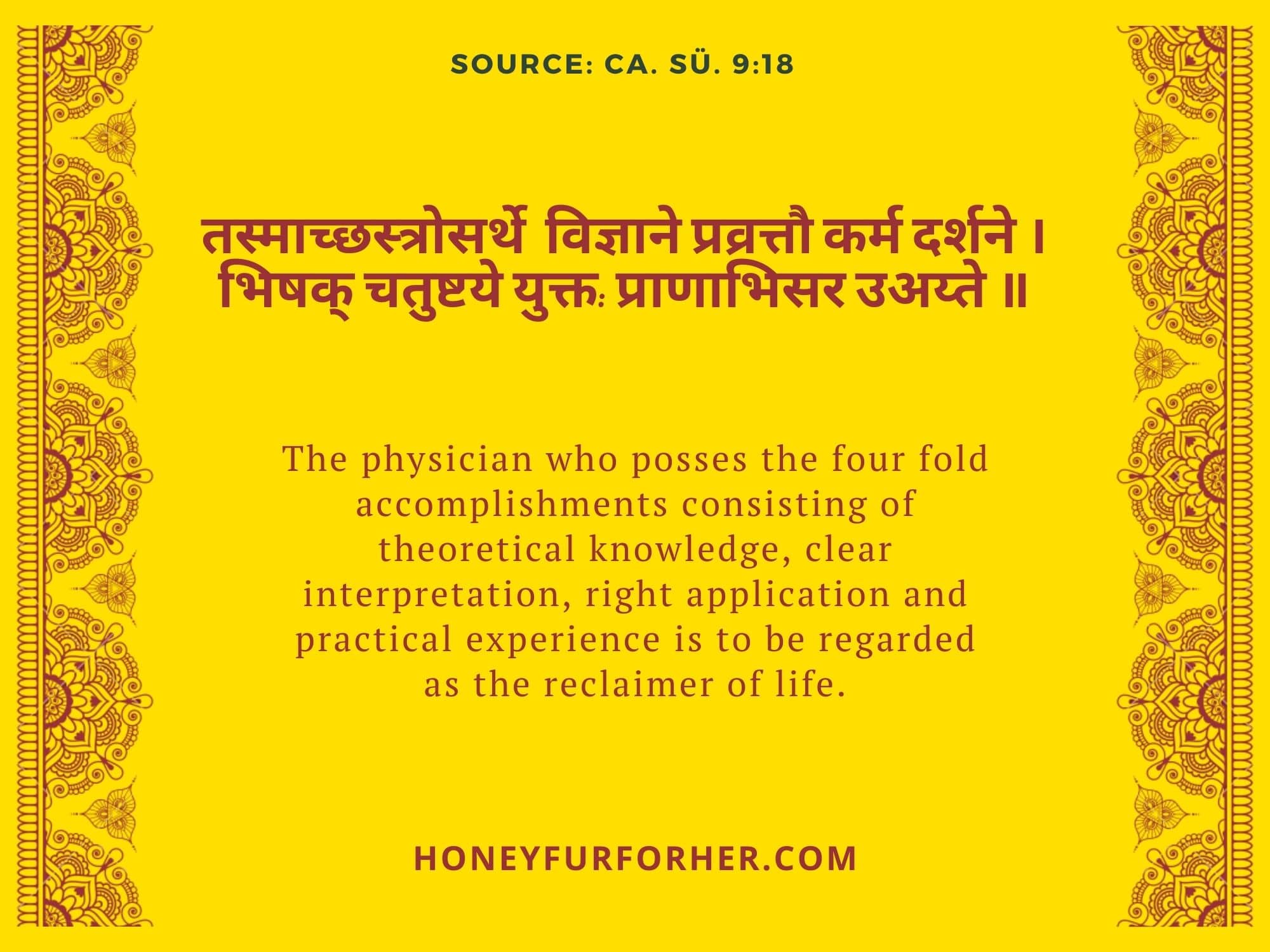
27 Ayurveda Quotes / Shlokas In Sanskrit With English Translations
Ayurveda. A five thousand year old system of healing with origins in the Vedic culture of ancient India. The Sanskrit word Ayurveda is derived from the root words ayuh, meaning "life" or "longevity," and veda, meaning "science" or "sacred knowledge.". Ayurveda therefore translates as, "the sacred knowledge of life.".

27 Ayurveda Quotes / Shlokas In Sanskrit With English Translations
When translated from Sanskrit, Ayurveda means "the science of life" (the Sanskrit root ayur means "longevity" or "life" and veda means "science"). There is a saying in South India, 'Unless you forget what you have learnt, you will not achieve liberation'. All the things you learn — music, Ayurveda, chemistry or physics, have to be forgotten.

Today is World Health Day and on this occasion, we have written an article on 'RituCharya', the
The Charaka Samhita ( IAST: Caraka-Saṃhitā, "Compendium of Charaka ") is a Sanskrit text on Ayurveda (Indian traditional medicine). [1] [2] Along with the Sushruta Samhita, it is one of the two foundational texts of this field that have survived from ancient India. [3] [4] [5] It is one of the three works that constitute the Brhat Trayi .

27 Ayurveda Quotes / Shlokas In Sanskrit With English Translations
Many of it sutras are direct quotes from earlier writers. Sri Kantha Murthy again does this Sanskrit/Devanagari and English translation. Madhava Nidanam Madhava Nidanam, available here in Sanskrit/Devanagari and English translation by Srikantha Murthy, deals with the classification of diseases in Ayurveda. Its taxonomy is slightly different at.

27 Ayurveda Quotes / Shlokas In Sanskrit With English Translations
Charaka Charak Monument in Yog Peeth Campus, father of medicine & surgery Charaka (Sanskrit: चरक, romanized: Caraka, fl. c. 100 BCE - 200 CE [1]) was one of the principal contributors to Ayurveda, a system of medicine and lifestyle developed in Ancient India.
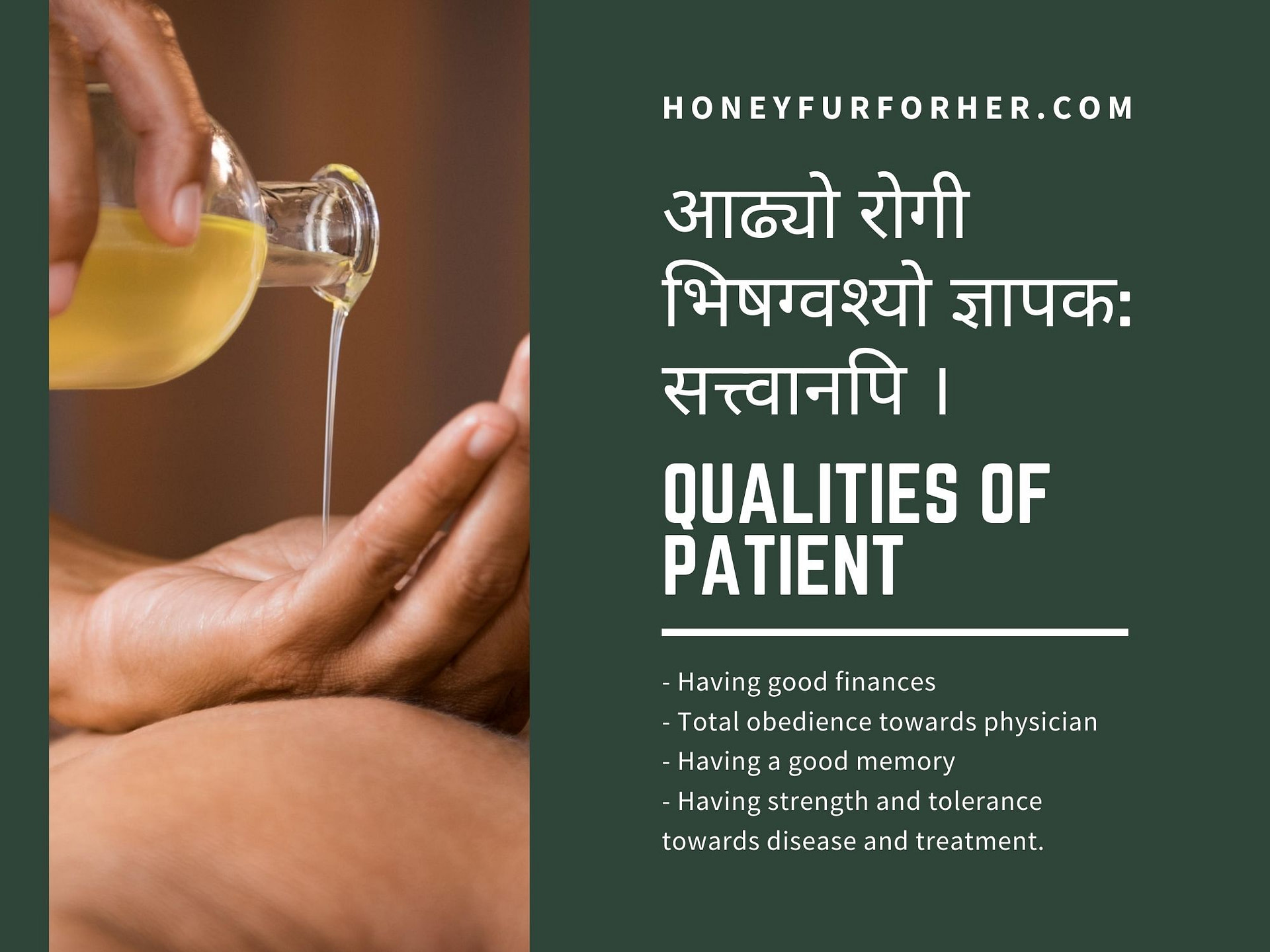
27 Ayurveda Quotes / Shlokas In Sanskrit With English Translations
1. "The body is the foremost tool for manifesting our mind." 2. "Your body is your temple; your food is your sacrifice." 3. "Ayurveda teaches us to live in harmony with ourselves, others, and the environment to achieve true well-being." - Ayurvedic principle. 4. "Consume less from the box and more from the environment." 5.
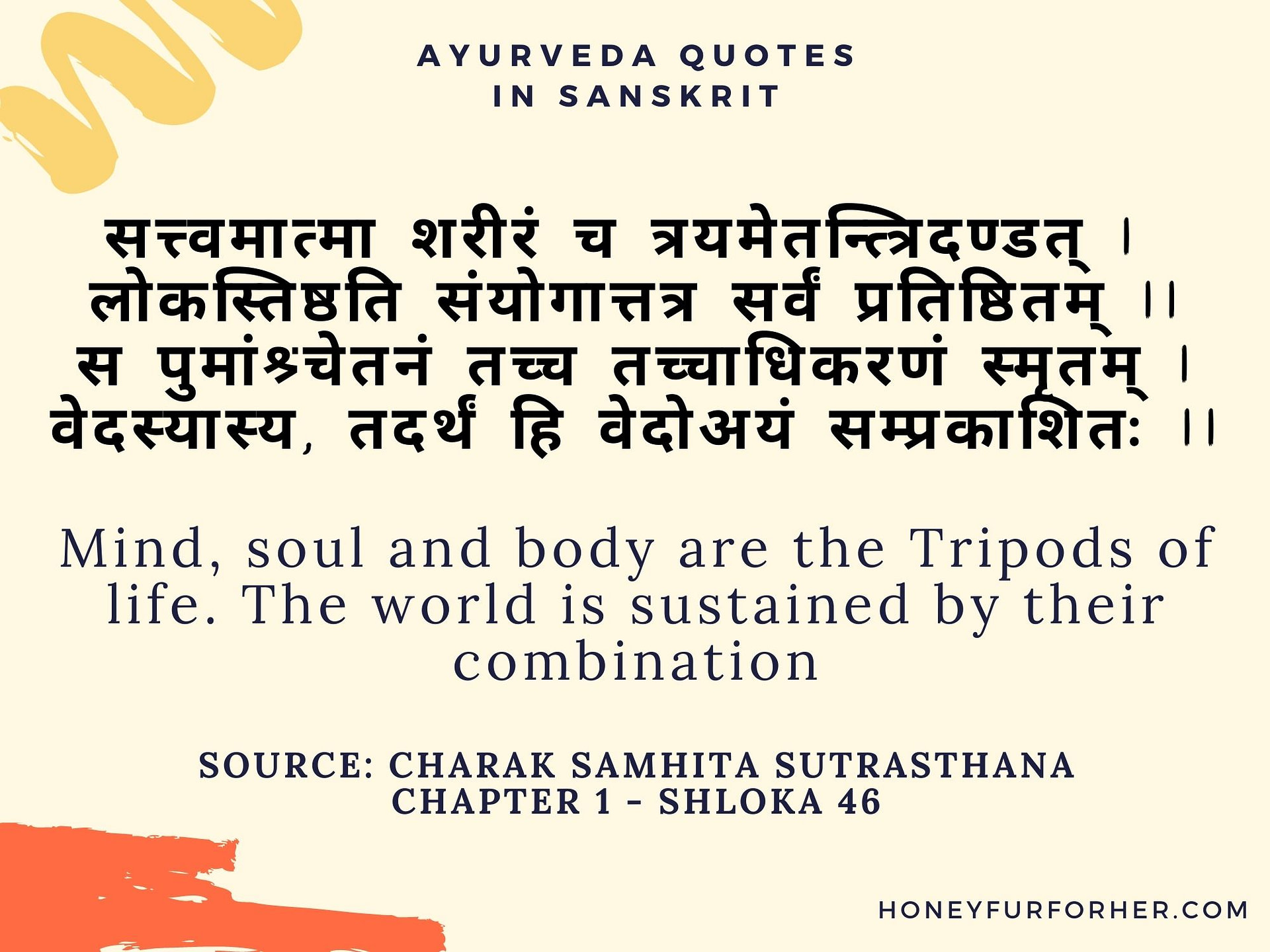
27 Ayurveda Quotes / Shlokas In Sanskrit With English Translations
Āyurveda (आयुर्वेद, ayurveda) is a branch of Indian science dealing with medicine, herbalism, taxology, anatomy, surgery, alchemy and related topics. Traditional practice of Āyurveda in ancient India dates back to at least the first millenium BC. Literature is commonly written in Sanskrit using various poetic metres.
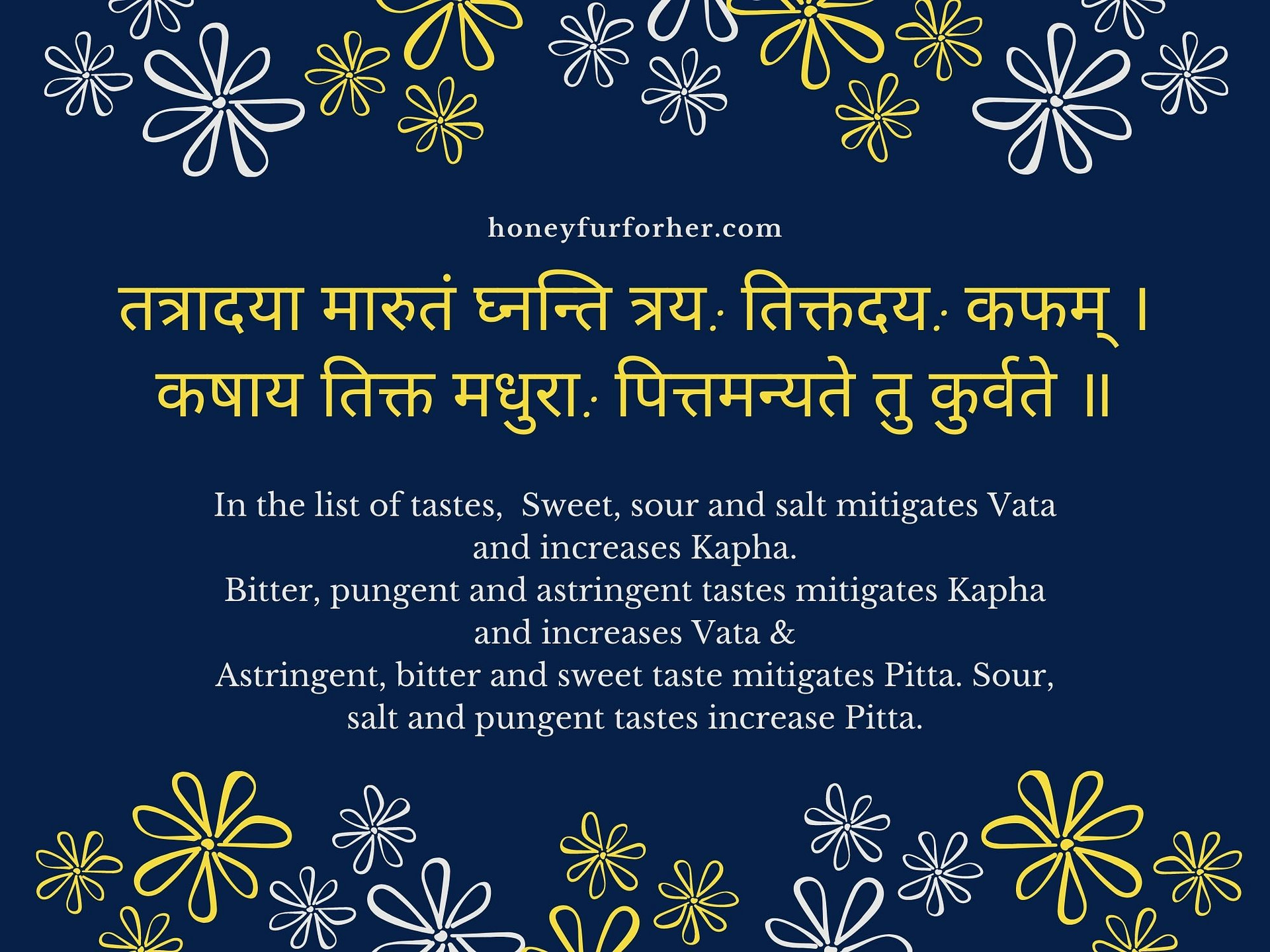
27 Ayurveda Quotes / Shlokas In Sanskrit With English Translations
Ayurveda Quotes In Sanskrit: Types Of Digestive fires #8. Qualities Of Vata Dosha #9. Qualities Of Pitta Dosha #10. Qualities of Kapha Dosha #11. Cause For Health And Disease #12. Qualities Of A Doctor #13. Qualities Of Medicine #14. Qualities Of A Nurse #15. Qualities Of A Patient #16. Prataruthana (Waking up in the morning) #17.

Health Verses in Sanskrit 10 Habits for great health according to Ayurveda Sanskrit quotes
Ayurvedic philosophy, including the understanding of the doshas (Vata, Pitta, Kapha), the importance of balance (Prakriti and Vikriti), and the concept of Agni (digestive fire), is expressed and articulated through Sanskrit. Mantras and rituals-. Ayurveda incorporates certain rituals, mantras, and prayers into healing practices.

Health Verses in Sanskrit 10 Habits for great health according to Ayurveda Sanskrit, Ayurveda
1. प्रज्ञानम् ब्रह्म Prajñānam Brahma Knowledge is Brahma. This Mahavakya refers to the fact that Brahma is the knowledge of Brahma or the truth itself. 2. अयम् आत्मा ब्रह्म Ayam Ātmā Brahma This Mahavakya is from the Mandukya Upanishad of the Atharvaveda. The Self is Brahma.

Pin on Ayurveda Lifestyle Medicinal Herbs For Health
Monday, April 8, 2019 Yoga Therapy and its Basis in Ayurveda [with Sanskrit Quotes] In this interview, Dr. Ashutosh, the director of an ashram in India, talks about yoga as a tool for mental, physical and spiritual health.
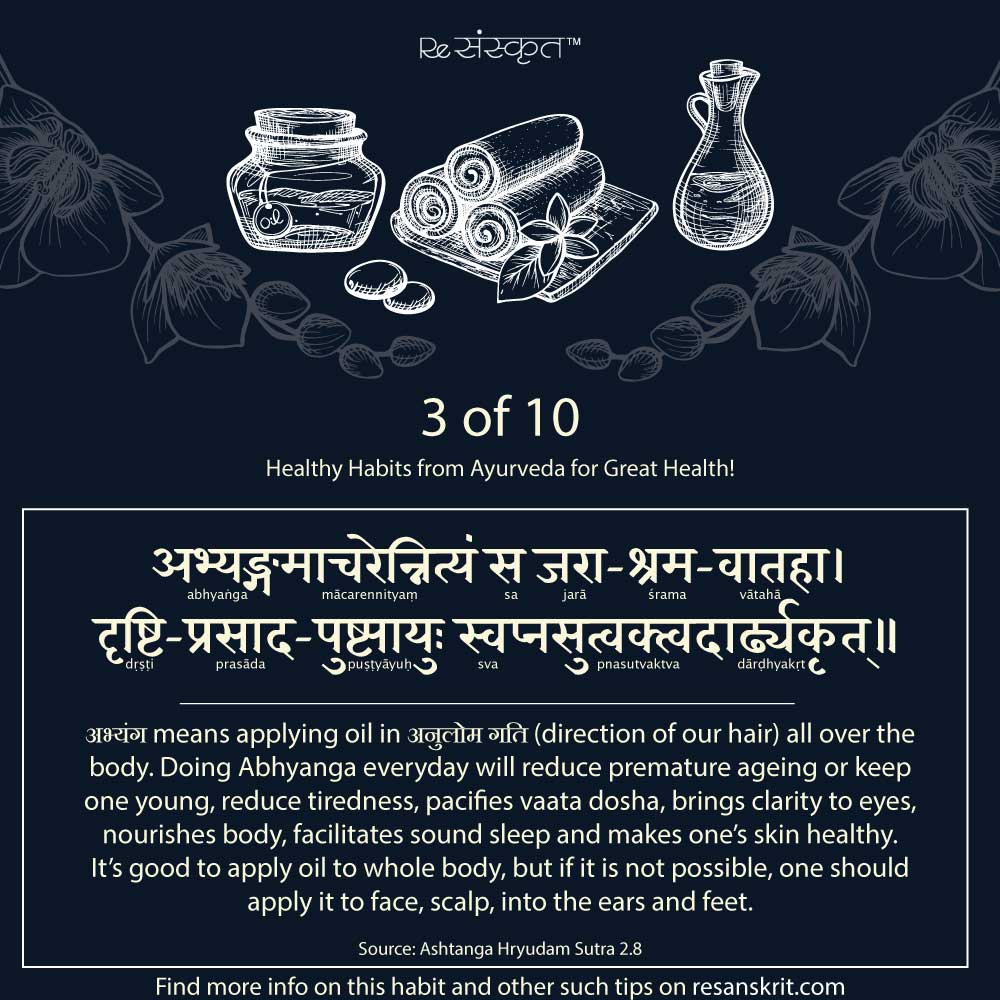
10 Habits for great health in Sanskrit according to Ayurveda! (2022)
This word is familiar to yogis from the frequently mispronounced name of the popular pose prasārita pādottānāsana, or wide spread intense extended leg posture. Because yoga and Ayurveda were born from the same philosophy, Sanskrit is equally interwoven into both sciences, so understanding one will help a student understand the other.

Sanskrit Shlok on Being Immutable or Detached or Indifferent Sanskrit quotes, Sanskrit, Hindu
"Life (ayu) is the combination (samyoga) of body, senses, mind, and reincarnating soul. Ayurveda is the most sacred science of life, beneficial to humans both in this world and the world beyond." Charaka "The great thing about Ayurveda is that its treatments always yield side benefits, not side effects." Shubhra Krishan

27 Ayurveda Quotes / Shlokas In Sanskrit With English Translations
10 Habits for great health in Sanskrit according to Ayurveda! October 28, 2018 What is Ayurveda really? For most of us, Ayurveda is just another way of treating illnesses with medicines that are made up of herbs. Well, Ayurveda is much much more than that and today, on National Ayurveda Day, we are going to explore that.

Habit1of10AyurvedaReSanskrit Sanskrit Mantras, Hindu Mantras, Yoga Mantras, Sanskrit Words
Sanskrit: Golden Key to Ayurvedic Wisdom. Posted on May 13, 2021 by Auromere — Leave a comment. Ayurveda is an ancient system of natural holistic medicine from India, passed on to modern times and surviving through two main lines of transmission: the unbroken teacher-student ( guru-śiṣya or guruparampara) relationship, and the traditional.